Academician Dmitry Sergeyevich Likhachev today would have turned 110 years
Dmitry Sergeevich Likhachev was born in a modest intelligent family. His father was an electrical engineer Sergey Mikhailovich Likhachev, his mother - Vera Semenovna Likhacheva, nee Konyaeva. The future academician's childhood was in the short, but truly brilliant time in the history of Russian culture, which is now called the Silver Age. It is worth noting that Likhachev's parents did not belong to the artistic or literary environment, but this era also affected their family. A very great passion of Dmitry Likhachev's parents was ballet. Every year, even lacking funds, his parents sought to rent an apartment closer to the famous Mariinsky Theater. They bought two ticket tickets in the box of the third tier and did not miss almost any presentation. Dmitri, from the age of four, attended shows with his parents.
In the summer, the family often went to rest in Kuokkala for a holiday. Here, then, many representatives of the literary and artistic world of St. Petersburg, famous artists, rested. On the paths of the local park one could easily meet Maxim Gorky, Fyodor Shalyapin, Ilya Repin and many other representatives of the creative intelligentsia. Some of them performed here in the amateur country house theater, shared memories, recited poems. It can be said that Likhachyov’s childhood took place in a creative environment, which could not but affect his life.
In 1914, a month after the start of World War I, Dmitry Likhachev went to school. Initially, he studied at the gymnasium of the Imperial Human-Loving Society (up to 1916), then at the gymnasium and real school of K.I. May (up to 1917), and finally, at the Soviet single labor school (former Lentovskaya gymnasium, today it is secondary school № 47, which bears the name of Dmitry Likhachev). After graduating from school in 1923, Likhachev entered the Leningrad State University.
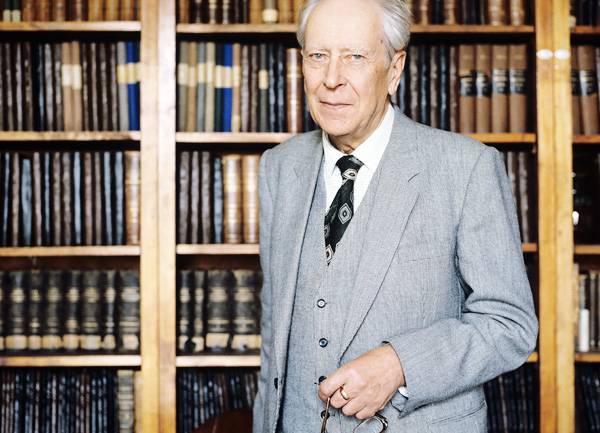
At university, the future academician studied before the 1928 year. He studied at the Faculty of Social Sciences, at the Department of Linguistics and Literature. He studied at once in two sections, the Slavic-Russian and the Roman-Germanic. It was at Leningrad University that he became entrenched in the love of his native culture and history, and began to study ancient Russian literature. Later, Likhachev had every reason to say: “Leningrad State University in the 1920s in the humanities was the best educational institution in the world.” And indeed, the school had at that time an amazing professorship.
At this time in Leningrad there were a large number of literary and philosophical circles. In 1927, many of them began to acquire a religious-philosophical or even theological character, which was at odds with the Soviet reality, in which there were active persecutions of the church. In this Likhachev in 1920-e visited one of these circles, he was called "Helfernak" (artistic, literary, philosophical and scientific academy). The meetings of the group were held in a regular apartment, which belonged to the teacher Dmitry Likhachev I. M. Andreevsky. 1 August 1927, this circle, by the decision of its members, was transformed into the Brotherhood of St. Seraphim of Sarov. In addition to him, Dmitry took part in the work of another circle - the Space Academy of Sciences. The activities of the comic academy involved the writing and subsequent discussion of semi-serious scientific reports, friendly practical jokes, and joint walks to Tsarskoye Selo.
The activities of these circles attracted the attention of the authorities and cost Dmitry Likhachev quite expensive. First were arrested members of the Space Academy of Sciences, and then the Brotherhood of St. Seraphim of Sarov. The investigation into these two circles was later merged into one criminal case, February 8 1928, Likhachev was arrested. This was a new stage in the life of the future academician, who was to pass with honor and dignity. After the investigation, which lasted six months, Likhachev was sentenced to 5 years of camps for counter-revolutionary activities.
He was sent to serve his sentence in the famous ELEPHANT - Solovki special purpose camp. Later Likhachev Solovki called his "second, and most important, university." Dmitry was in the camps from November 1928 of the year to August of 1932. It was at this time that his first scientific work was published. In 1930, the journal Solovetsky Islands published his work Card Games of Criminals. He was in Solovki until November 1931, after which he was transferred to the mainland to Belbaltlag. Here he worked as an accountant and railway dispatcher at the construction of the White Sea-Baltic Canal.
In August 1932, Likhachev was released early and without any restrictions as a drummer. He was able to return to Leningrad, where he worked as a literary editor in various publications. Moreover, his health was undermined by camp life. He had a gastric ulcer, which was accompanied by heavy bleeding. Therefore, Likhachev spent months in the hospital, which hindered his work activities. In 1935, he married Zinaida Aleksandrovna Makarova, and in 1937, twin girls Vera and Lyudmila were born.
A new period began in Likhachyov’s life, which was associated not only with the joys and problems of home family life, but also with the acquisition of his beloved work. Since 1938, he has been working at the Institute of Russian Literature (Pushkin House) of the USSR Academy of Sciences. A very long period of his life will be associated with the Pushkin House. Having come here as a junior researcher, he will eventually become the head of the department of Old Russian literature (1986 year). Just before the beginning of World War 11 June 1941, he defended his thesis on the topic “Novgorod chronicles of the XII century” here, receiving a degree in philology.
Likhachev met the war in Leningrad, having witnessed the most terrible pages in the history of the city on the Neva. He was not called to the front for health reasons. Since autumn 1941, Dmitry Sergeevich lived and worked in the besieged city with his family. They were evacuated from besieged Leningrad in June 1942, so the Likhachev family found themselves in Kazan. Later, for selfless labor in the city besieged by Hitler’s troops, he was awarded the medal “For the Defense of Leningrad”.
Later, he recalled how the days passed in their family. In the morning, we had to heat the stove with the books, then together with the children they prayed and prepared rather scarce food (crushed bones boiled many times already, soup from wood glue, etc.). Already in 6 hours of the evening they tried to go to bed, throwing over as many warm clothes and clothes as possible. Before going to sleep, Likhachev tried to read a little by the light of the oil lamp, while it was hard to fall asleep, since all thoughts then were only about food. Amazingly, even in a city besieged on all sides, he did not cease to engage in scientific activities. Having survived the hardest blockade winter, which claimed hundreds of thousands of lives of Leningrad, in the spring of 1942, Likhachev began collecting materials on the poetics of ancient Russian literature and co-authored with M. A. Tihanova and prepared the study "Defense of Old Russian Cities". This book, published in 1942, was the first in his bibliography. By Dmitry Sergeyevich definitely include a line from Nikolai Tikhonov's poem “The Ballad of Nails” - “Make nails out of these people: There would be no stronger nails in the world.” And indeed, Likhachev managed to survive the conclusion on Solovki and the first most severe blockade winter in Leningrad, did not break, survived and continued to engage in his scientific activities.
After the war, Likhachev was still actively engaged in science. In 1945-1946 in the country there were his books "National Identity of Ancient Russia", "Culture of Russia in the era of the formation of the Russian national state", "Novgorod the Great". In 1947, he successfully defended his doctoral thesis on "Essays on the history of literary forms of chronicling of the XI-XVI centuries." Starting from the 1946 year, he worked at Leningrad State University - Leningrad State University: first as an assistant professor, and in 1951-1953 years - professor. At the history department of the university, he gave students special courses “Paleography”, “History of Russian Chronicles”, “History of Culture of Ancient Russia” and many others.
Dmitry Sergeevich devoted most of the written scientific works to the study of the culture of Ancient Russia and the traditions of that time period: “National Identity of Ancient Russia” (1945 year), “The emergence of Russian literature” (1952 year), “Man in the literature of Ancient Russia” (1958 year ), “The Russian culture of the time of Andrei Rublev and Epiphany the Wise” (1962 year), “The Poetics of Old Russian literature” (1967 year), essay “Notes on Russian” (1981 year). Also, a collection entitled “The Past to the Future”, which was released in 1985, was devoted to Russian culture and the inheritance of its traditions. All these works contributed to the preservation of the national identity of the Russian people, the preservation of a rich cultural and creative heritage.
Likhachev also paid great attention to the study of the great monuments of Old Russian literature, The Tale of Bygone Years and The Word about Igor's Regiment, which are familiar to every schoolboy today. He translated these works into modern Russian. For the first time, the author’s translations were published in the 1950 year. In different years of his life, the scientist wrote a large number of monographs and articles devoted to these significant works, which were translated into many languages of the world.
In 1953, Dmitry Sergeevich was elected a corresponding member of the USSR Academy of Sciences, and in 1970, he became a full member (academician) of the USSR Academy of Sciences. It is important to note that, in addition to scientific activities, Academician Likhachev paid great attention to social work. He considered his work as most important for himself as chairman of the editorial board in the “Literary Monument” series in the Soviet and later Russian culture fund (1986-1993), as well as work as a member of the editorial board of the academic series “Popular science literature” (since 1963 year). Likhachev was very active in the media in defense of monuments of the great Russian culture - parks, streets, individual buildings. Thanks to its direct influence, it was possible to save many monuments located in Russia and Ukraine from demolition, “restoration” and “reconstruction”.
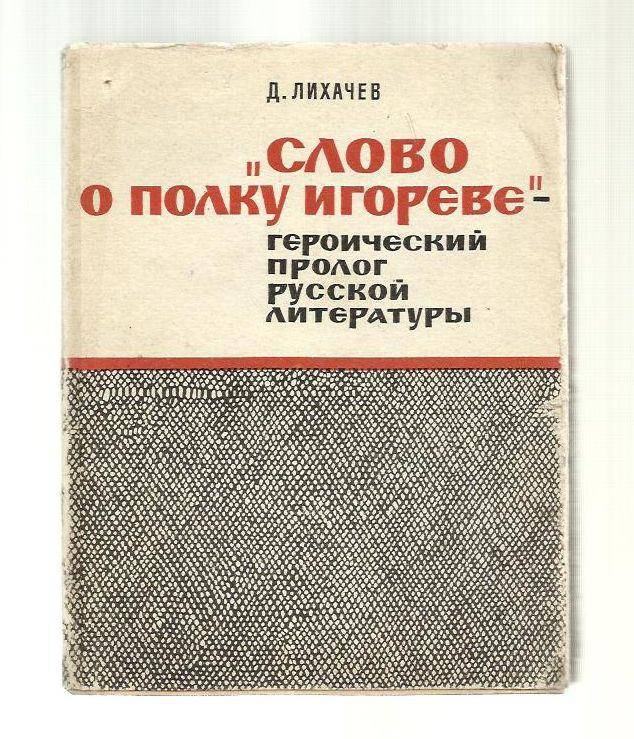
Particularly loudly the voice of the publicist Likhachev sounded in 1980-1990-s. In his numerous interviews and articles of those years, during speeches he raised issues of preservation of cultural heritage monuments, preservation of cultural space, issues of ecology, historical memory as a moral category, and many others. The spiritual authority of the academician in those years was so great that he was justly called the "conscience of the nation." From 1989 to 1991, he was elected people's deputy of the Supreme Soviet of the USSR from the Soviet Culture Foundation.
At the same time, Dmitry Sergeevich never was in the CPSU, and also refused to sign letters against prominent cultural figures of the Soviet Union. But he was never a dissident, seeking to find a reasonable compromise with Soviet power and reality. In many ways, this was facilitated by the field of activity chosen by him. Likhachev spent his life engaged in his favorite business, which helped to support his family and not have conflicts with the authorities, in contact with the party apparatus as little as possible. Old Russian literature was a peripheral occupation, which in no way echoed the communist ideology.
When they say "a talented person is talented in everything," there is always some truth in this. Dmitry Likhachev drew quite well. In 1999, exactly one week after the academic's death, the Novgorod Album saw the light of it. Approximately 90 percent of the drawings in it were devoted to the depiction of monasteries and temples of Veliky Novgorod. All drawings were made by an academic in the summer of 1937. In life, answering the question "Dmitry Sergeevich, did you like to draw so much?", He replied: "No, just at that time I did not have the opportunity to purchase a camera."
For his scientific and social activities, Academician Dmitry Sergeevich Likhachev was awarded a large number of government awards. He was twice awarded the State Prize of the USSR for scientific works “The History of Culture of Ancient Russia” (1952 of the Year) and “Poetics of Literature of Ancient Russia” (1969 Year), he also won the State Prize of the Russian Federation for the series “Monuments of Literature of Ancient Russia (1993 Year ). In 2000, he was posthumously awarded the State Prize of the Russian Federation for the development of the artistic direction of Russian television and the creation of the all-Russian state television channel Kultura.
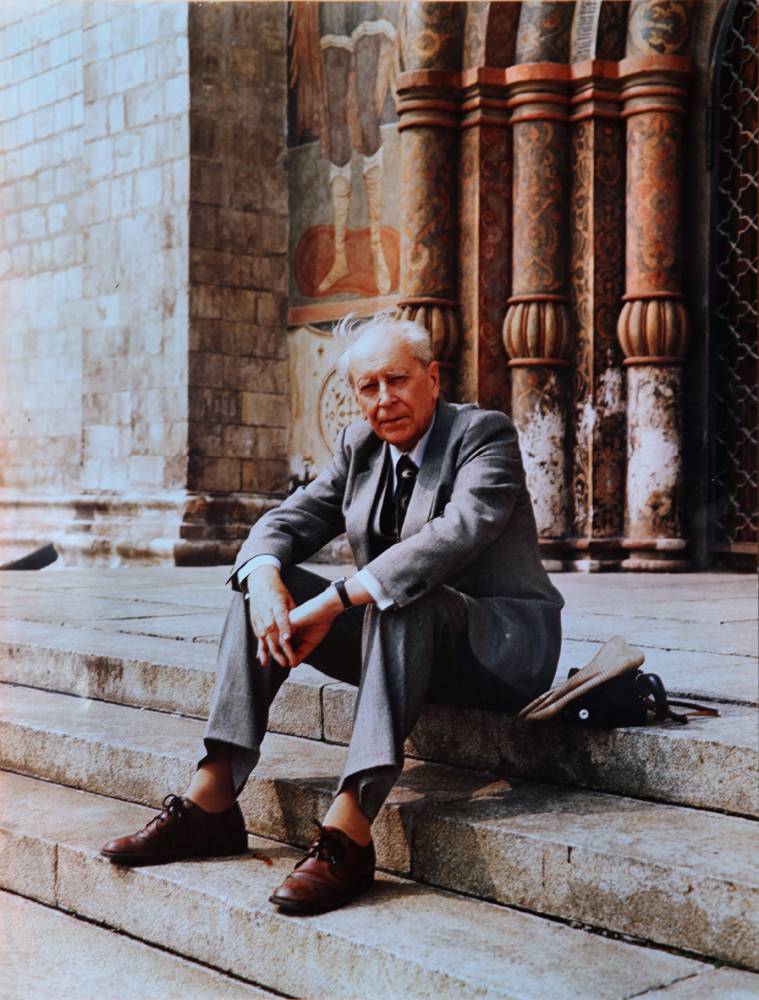
Academician Dmitry Sergeyevich Likhachev was awarded many top awards of the USSR and Russia. In particular, in 1986, he was awarded the title Hero of Socialist Labor with the award of the Order of Lenin and the Hammer and Sickle gold medal. He was also the first holder of the revived Russian Order of St. Andrew the First-Called (1998 year), he had numerous orders and medals.
Dmitry Sergeyevich Likhachev 30 died on September 1999 of the year at the age of 92. He was buried at the memorial cemetery in Komarovo near St. Petersburg. The name of Dmitry Likhachev was awarded to the Russian Research Institute for Cultural and Natural Heritage in Moscow, as well as a prize established by the government of St. Petersburg and the D. Likhachev Foundation. Also his name is a small planet №2877, which was discovered by Soviet astronomers, and the area located in the Petrograd district of St. Petersburg.
Based on materials from open sources
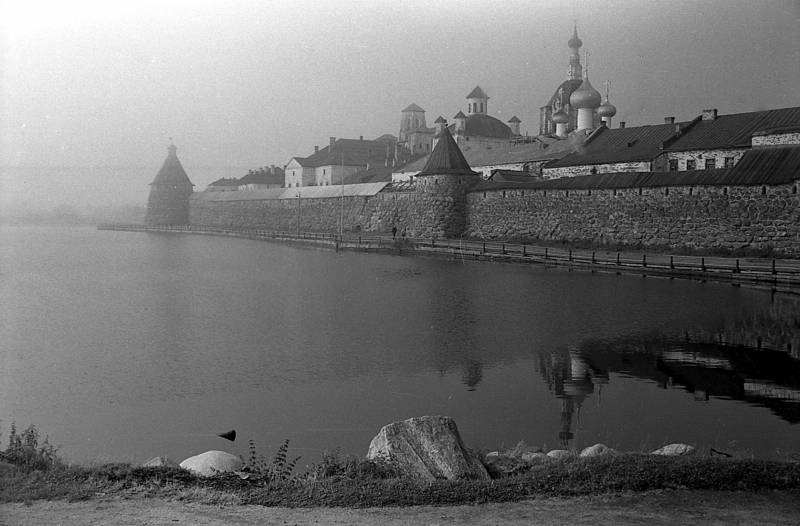
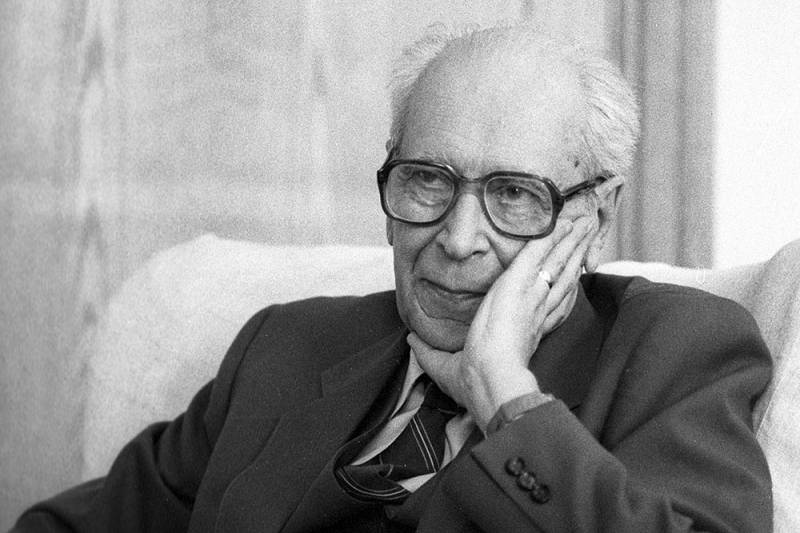
Information